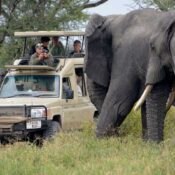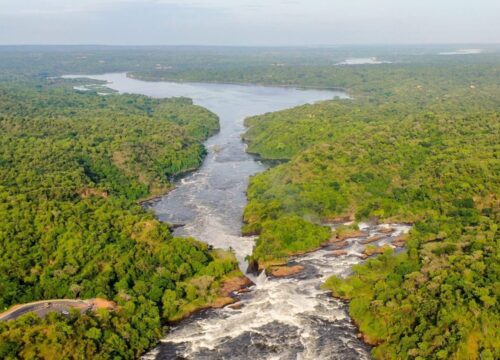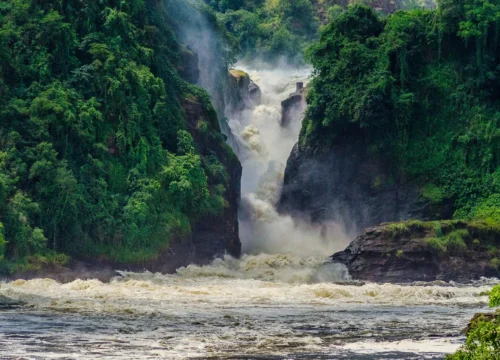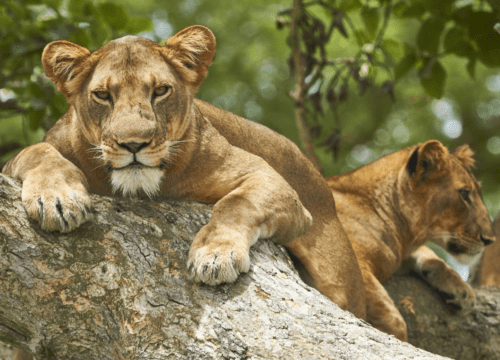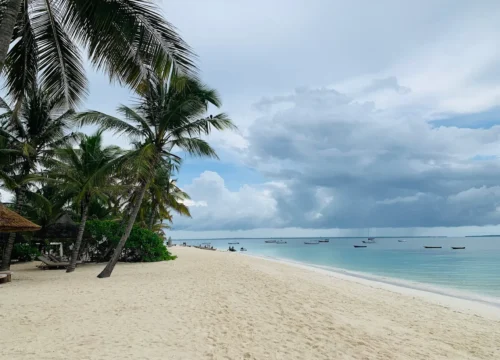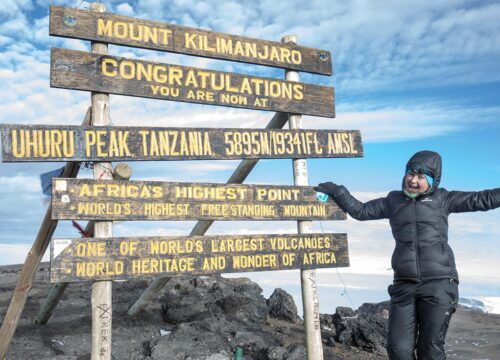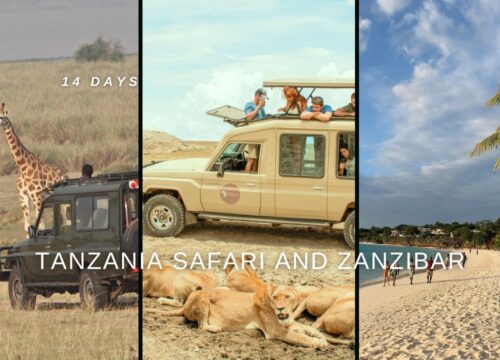Primates in Uganda
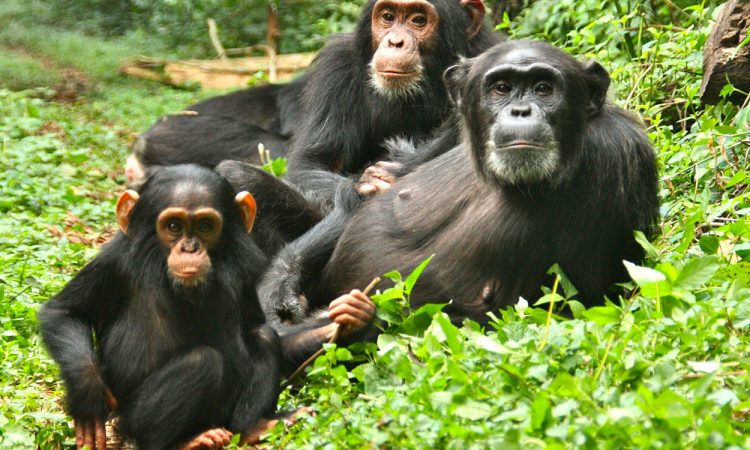
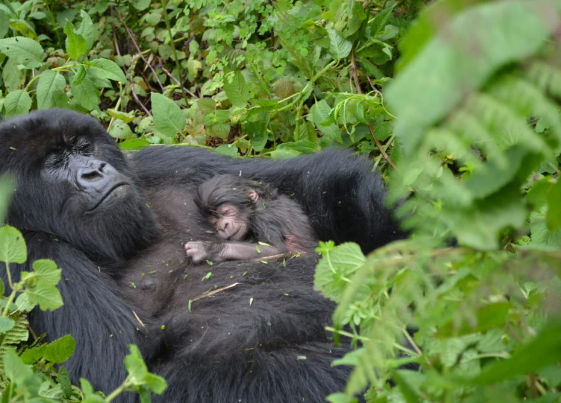
Primates in Uganda
Primates in Uganda, a country blessed with a remarkable diversity! If you’re planning a visit and eager to explore the fascinating world of primates, you’re in for a treat.
Here’s what you need to know about primates in Uganda:
1. Mountain Gorillas:
- One of the rarest and most iconic primate species on the planet.
- Found in the dense forests of Bwindi Impenetrable National Park and Mgahinga Gorilla National Park.
- Uganda is home to about half of the world’s remaining mountain gorilla population.
- Gorilla trekking permits are required and should be booked well in advance due to high demand.
2. Chimpanzees:
- Uganda boasts one of the highest populations of chimpanzees in Africa.
- Kibale Forest National Park is renowned for its large community of habituated chimpanzees.
- Chimpanzee trekking offers a thrilling opportunity to observe these intelligent primates in their natural habitat.
3. Golden Monkeys:
- Endemic to the bamboo forests of Mgahinga Gorilla National Park.
- Known for their striking golden fur, these monkeys offer a unique primate viewing experience.
- Golden monkey trekking is a must-do activity for nature enthusiasts.
4. Colobus Monkeys:
- Uganda is home to both black-and-white colobus monkeys and red colobus monkeys.
- These beautiful primates can be spotted in various national parks and forest reserves across the country.
- Keep your camera ready to capture their graceful movements in the treetops.
5. L’Hoest’s Monkeys:
- Found in the forests of western Uganda, including Bwindi Impenetrable National Park.
- Although elusive, lucky visitors may catch a glimpse of these shy monkeys during forest treks.
6. Baboons and Vervet Monkeys:
- Olive baboons and vervet monkeys are among the more common primate species in Uganda.
- They can be observed in various habitats, from savannas to forests, and even around human settlements.
- Remember to maintain a respectful distance and avoid feeding them to ensure their well-being and natural behavior.
When visiting Uganda to explore its rich primate diversity, it’s essential to prioritize responsible tourism practices. Here are a few tips:
- Respect the natural habitat of primates and follow the guidance of experienced guides and rangers.
- Keep noise levels to a minimum to avoid disturbing the animals.
- Follow all rules and regulations, including those regarding photography and interactions with primates.
- Consider staying at eco-friendly accommodations that support conservation efforts in the region.
By embracing responsible tourism practices, you can contribute to the conservation of Uganda’s precious primate species and ensure that future generations can continue to marvel at these incredible creatures.
Welcome to Uganda, where unforgettable primate encounters await you amidst the beauty of its wild landscapes!
What are the two major selling primates in Uganda?

In Uganda, the two major selling primates are:
- Mountain Gorillas: Mountain gorillas are undoubtedly the most significant selling primate species in Uganda. They attract tourists from all over the world, eager to experience the rare opportunity to observe these majestic creatures in their natural habitat. Gorilla trekking permits are in high demand, and revenue generated from gorilla tourism plays a crucial role in conservation efforts aimed at protecting these endangered primates.
- Chimpanzees: Chimpanzees are another major selling primate species in Uganda. With one of the highest populations of chimpanzees in Africa, Uganda offers fantastic opportunities for chimpanzee trekking and habituation experiences. Kibale Forest National Park, in particular, is renowned for its large community of habituated chimpanzees, drawing visitors keen on observing these intelligent and social primates up close.
Both mountain gorillas and chimpanzees contribute significantly to Uganda’s tourism industry, supporting conservation efforts and providing sustainable livelihoods for local communities involved in eco-tourism initiatives.
Colobus Monkeys Uganda
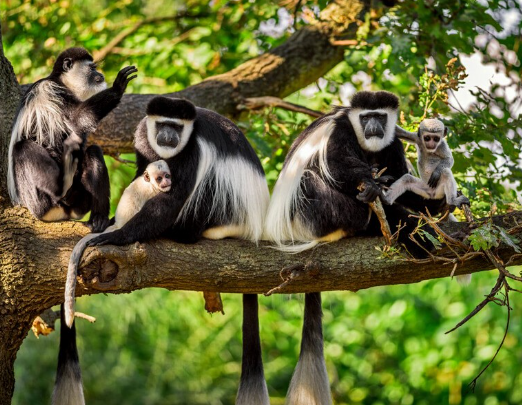
The colobus monkey species found in Uganda include the black-and-white colobus monkey (Colobus guereza) and the red colobus monkey (Piliocolobus tephrosceles).
- Black-and-White Colobus Monkey (Colobus guereza):
- These striking monkeys are known for their distinctive black and white fur, which makes them easily recognizable.
- Black-and-white colobus monkeys inhabit various forests and national parks across Uganda, including Kibale Forest, Queen Elizabeth National Park, Murchison Falls National Park, and others.
- They are primarily arboreal, spending much of their time in the canopy, where they feed on leaves, fruits, and occasionally insects.
- Visitors to Uganda may have the opportunity to spot these beautiful monkeys during guided forest walks and nature hikes.
- Red Colobus Monkey (Piliocolobus tephrosceles):
- Red colobus monkeys are endemic to certain areas of Uganda, including Kibale Forest and Semliki Wildlife Reserve.
- They are named for their reddish-brown fur, which distinguishes them from other colobus monkey species.
- Like black-and-white colobus monkeys, red colobus monkeys are primarily leaf-eaters, with a diet consisting mainly of leaves supplemented with fruits and other plant materials.
- While sightings of red colobus monkeys may be less common than black-and-white colobus monkeys due to their restricted range, visitors exploring the forests of Uganda may still have the opportunity to encounter these unique primates.
Both species of colobus monkeys contribute to the rich biodiversity of Uganda’s forests and provide valuable opportunities for wildlife enthusiasts and researchers to study these fascinating animals in their natural habitat.
GENERAL INFORMATION
ENTRY REQUIREMENTS:
All visitors to Uganda must have a valid passport with at least 4 consecutive blanks pages. Any applicable visa and/or relevant documentation are the responsibility of the traveller. For further information on Visa requirements visitors are advised to contact their nearest Uganda Embassy or Consulate.
LANGUAGE:
English
TIME:
GMT +3
VOLTAGE:
220 Volts/AC50Hz. Sockets are UK style, 3 pin square plugs. Power is from the UMEME in the city/major towns and generator with inverter back up in the Safari Lodges and Camps.
CURRENCY:
Foreign currency must be changed at the Bank, Bureau de Change, and Hotel/Safari lodge/Camp/Resort. Major Credit Cards, Master card, Visa, American Express, are usually accepted throughout the country. Where credit cards are accepted, the payment will normally be recorded in US$ regardless of the card’s default currency.
CLOTHING:
Dress is mainly informal and should be comfortable as well as practical. Something warm should be brought along for early morning and evenings. Safari clothes are available from hotels/lodges/camps.
BAGGAGE:
Where possible, travel light. Baggage space on safari is limited to medium suitcase or soft bag per person plus reasonable amount of hand luggage. There is 15 Kilogram per person limit on all flights to the wildlife sanctuaries. Excess luggage must be stored in your arrival hotel.
WATER:
You will find many different of opinion of what is safe and what is not. We recommend for peace of mind, to drink local Bottled Mineral water. It is important to drink plenty of water especially during the hotter months. We would recommend that guests drink at least 2 to 3 liters of water per day to limit the effects of dehydration.
HEALTH;
East Africa is a safe and secure destination; however, it is a good idea to take a few precautions. Kindly consult your GP or local doctor at least 6 weeks before you travel, with regards:
Malaria prophylactics. East Africa is a known malaria area and preventive measures are essential. You are advised to take one of the recommended anti-malarial drugs. Be sure to wear long sleeved shorts and trousers after sunset and spray the exposed parts of your body with a mosquito repellent spray
Remember to protect yourself from direct sun rays with sunscreen cream or safari hat.
DIETARY REQUIREMENTS:
For those guests with specific dietary requirement, please ensure we are notified prior to travel
GRATUITIES:
As a guideline and dependent on how happy you are, we would suggest the following:
The General Hotel/Lodge/Camp Staff – Approximately U$ 10.00 per person per day
Driver Guides – Approximately US$ 15.00 to US$ 20.00 per person per day
PHOTOGRAPHY:
Please be careful when photographing public buildings, airports, bridges, the national flag and people in uniform. Ensure that you have sought permission before photographing local people and their villages. If in doubt, please check with your guide.
Read about
10 Things you Should NOT DO on an African Safari.
What to expect on a safari in Uganda.
Bwindi Impenetrable National Park
How to Choose the Best Tour Operate for Your Safari in Africa
12-Day Gorilla Tracking in Bwindi
Some of our African Safaris
1 Day Jinja Ultimate tour Experience
1 Day White Water Rafting in Jinja
3 Days Bwindi Gorilla Habituation via Rwanda
3 Day Birding Safaris and Photography in Uganda
3 Day Safari to Queen Elizabeth National Park
3 Day fly in Gorilla Trekking Safari from Masai Mara
3 Day Grand Gorilla Trekking Safari
4 Day Chimpanzee and Gorilla Trekking Safari
Recent Posts
Victoria Falls Safari with Tanzania Extension
Last Minute Deals
Quick booking process
+49 1575 4711313

